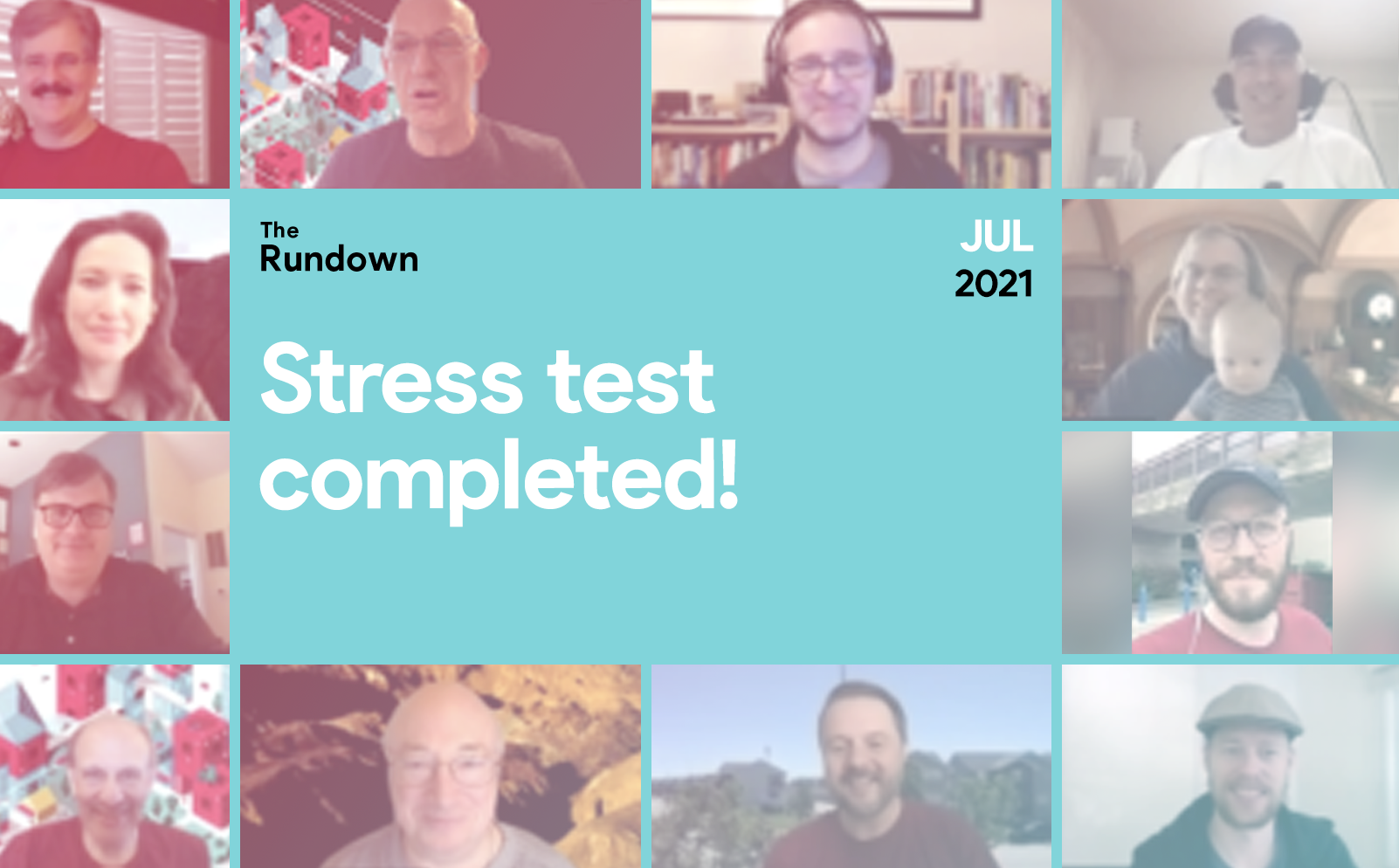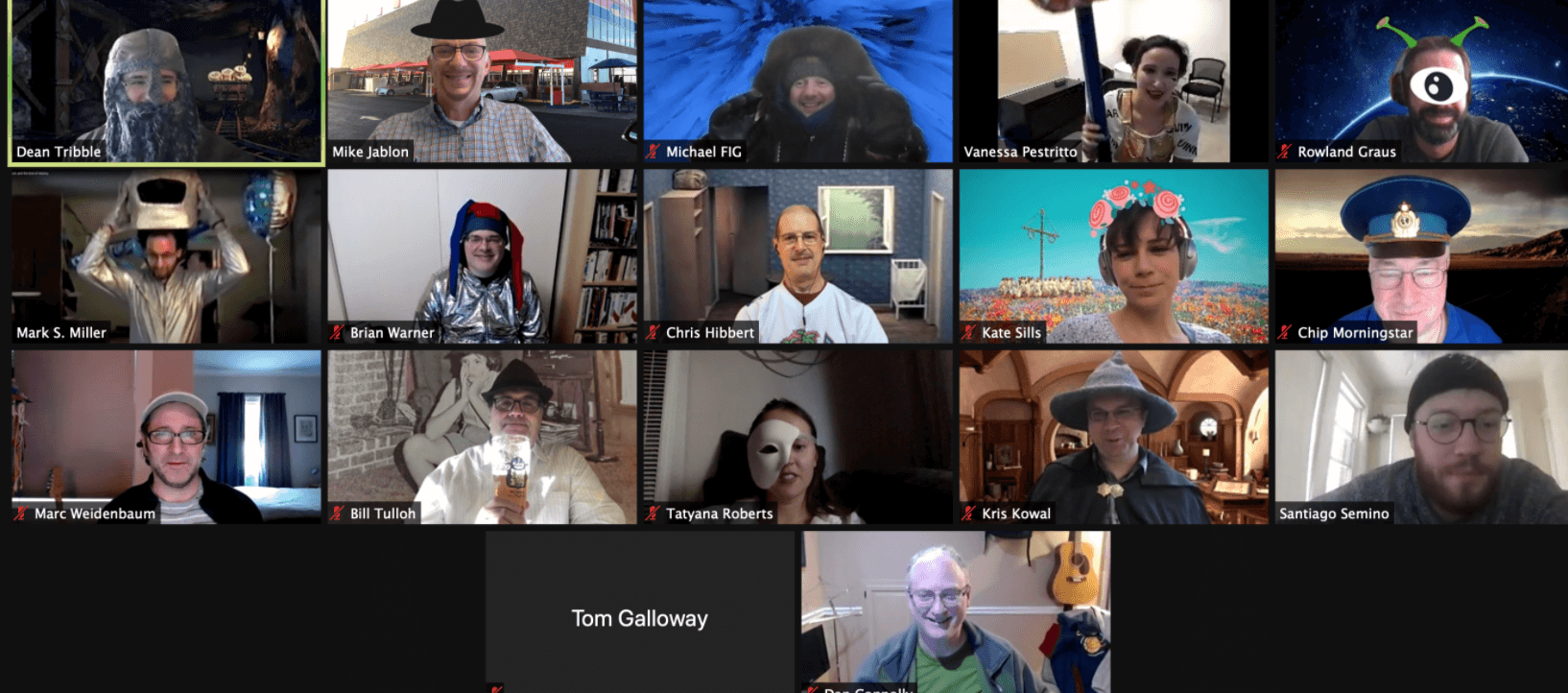Greetings from the Agoric crew, just in time for our next Community Call (tomorrow, July 7). There’s a lot going on. Check out our upcoming events and podcast appearances, and catch up with all our engineering developments.
Phase 4 of our incentivized testnet closed just before the long Fourth of July weekend. This phase was all about stress testing our network through a series of high-load tasks. Activity on our Discord and Twitter were high-energy throughout. We’ll have a recap report soon. We’re also introducing a Phase 4.5, focused on metering. News on that will follow shortly. Keep an eye on agoric.com/blog.
We’re excited about our community advocate expansion. We have added Turkish, German, and Singapore advocates recently, as we grow our international presence. Keep an eye out for localized initiatives coming from our community advocates.
Updates: What’s Happening at Agoric
Engineering News
We completed an integration with Keplr to allow their users to add Agoric networks into the extension, and an integration with Lunie Lite for a staking and governance UI.
A leading validator launched our proto-mainnet, which is a Cosmos-level chain only (no Agoric VM) for doing our initial token distributions in preparation for mainnet.
We continued work on end-to-end governance capabilities in JavaScript to be tested in July in preparation for the next Beta release.
We supported the Stress Test phase of our Incentivized Testnet, for which we shipped a number of Kernel-level items:
Garbage collection:
Cross-vat garbage collection was added to the SwingSet kernel, so when a contract (e.g., a bidder) drops a reference to an object in another contract (e.g., the offerResult), it is dropped from both vats and retired from the kernel data structures, saving memory and disk space.
The SwingSet “comms” layer now also implements full garbage collection, allowing cross-machine (e.g. solo-to-chain) references to be dropped and retired.
Restarting nodes from snapshots has landed! Our investment in the Moddable XS JavaScript engine is paying off: we have measured speedups of up to 260x (23min to 6sec).
We began work on allowing liens on staked tokens that will enable governance in the JavaScript layer as well as a core economy function.
We launched a breaking change to Zoe: significantly improving the ergonomics of the reallocate API, shortening contract code, and improving readability.
We upgraded to Cosmos 0.43.
Follow our engineering news at https://agoric.com/changelogs/
. . .
Developer Bounties Are Yours for the Coding!
We’ve just announced $34,000 in developer bounties! For all the DeFi entrepreneurs, JavaScript community, and native crypto developers, join us in building important pieces of infrastructure
https://agoric.com/blog/announcements/developer-bounties-are-yours-for-the-coding/
The Settlers of Blockchain
The game The Settlers of Catan teaches us that concise language is imperative to fair trade. Agoric takes note by designing “payments” and “amounts” as objects on our JavaScript smart contract platform, writes engineer Chris Hibbert.
https://agoric.com/blog/technology/the-settlers-of-blockchain/
Testnet Phase 3 Recap: Staking Dynamics with BLD and RUN in JavaScript
Phase 3 of the ongoing, five-phase Agoric incentivized testnet had validators engage in various network, community, and challenge tasks to test our staking mechanisms. We reached a major technical milestone, saw over 1,200 tasks submitted, and anointed winners for everything from bots to UI.
https://agoric.com/blog/all/testnet-recap-phase-3/
. . .
Events: Events in Which We’re Participating
Most scheduled events continue to take place remotely for the time being.
Community Call #10: June 7, 2021 @ 9 am PDT
AMA with Minted Labs: July 15, 2021 @ 11 pm PDT / July 16, 2021 @ 3 pm KST
The NFT Experience: “Looking Forward: Where Do NFTs Fit In?” Thursday, August 12 @ 5:05pm
Keep an ear out for us on the Altcoin Buzz and Erica Talks podcasts this week.
And check our calendar at agoric.com/events.
. . .
Work Here: 9 Open Positions at Agoric
All of the following nine positions are open in the US. and Canada unless noted otherwise:
Developer Relations
Partner Programs Manager
Community & Growth Manager
Director of Engineering
Front-End/App Developer
Front-End/UI Developer
Administrative Assistant (San Francisco Bay Area)
Operations Manager
Information Architect & Technical Writer
. . .
Bookmarks: What We’re Reading
Radical Markets: Uprooting Capitalism and Democracy for a Just Society
The authors, Eric Posner and Glen Weyl, envision ways in which markets — open, competitive, and free — can be applied to solve modern societal problems around private property, democracy, immigration, data privacy, and monopolies. The book rethinks the liberal synthesis of capitalism and democracy to leverage markets as a force for greater egalitarianism and a more accurate expression of our political voices. Posner, of the University of Chicago Law School, and Weyl, a research scholar in Law and Economics at Yale, are well qualified to give a deep analysis and historical context for their proposals. (Jim Larson)
Beethoven: A Life in Nine Pieces, by Laura Tunbridge
I have been enjoying this sweet tour of Beethoven’s life. The treat is listening to the works after reading the chapter. For the crypto folks, Beethoven lived in a time of inflation, changing currencies, deflation, war, and much more. He negotiated commissions in the currency he thought to be the most stable at the time. For the tech folks, Beethoven experimented with business models and gave exclusive license rights to a person for six months prior to the piece being published broadly or publicly performed. He had to negotiate with publishers in different countries to protect creative rights. He was an innovator. (Vanessa Pestritto)
https://www.goodreads.com/book/show/49876046-beethoven/
The WEIRDest People in The World, by Joseph Henrich
Glib summary: Anthropologists unknowingly recapitulate Hayek. More serious summary: Harvard anthropologist Joseph Henrich presents a sweeping argument, backed by vast troves of data, that we owe our modern civilization to church social engineering in the middle ages aimed at neutralizing rival social networks, the unintended consequences of which were to make us more independent-minded, more prosocial, more trusting of strangers, and more inclined to follow abstract general principles rather than granting status according to kinship. As Hayek would say, the result of human action, but not of human design.
https://us.macmillan.com/books/9780374710453/
. . .
Thanks for Reading and Sharing Please feel free to forward. You can join the Agoric community on Discord, Twitter, Telegram, and LinkedIn, subscribe to this monthly newsletter, and catch us at upcoming events.


